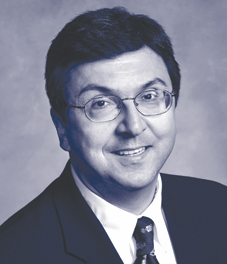| http://www.cjnews.com/index.php?option=com_content&task=view&id=15084&Itemid=101 | |
 TORONTO – University of Toronto president David Naylor, LEFT, has had to contend with expressions of frustration from the Jewish community about his reluctance to ban Israeli Apartheid Week events from his school, but this past spring he showed his ongoing support for Israeli universities with a week-long visit to the Jewish state. TORONTO – University of Toronto president David Naylor, LEFT, has had to contend with expressions of frustration from the Jewish community about his reluctance to ban Israeli Apartheid Week events from his school, but this past spring he showed his ongoing support for Israeli universities with a week-long visit to the Jewish state.
In May, Naylor travelled to Israel to take part in meetings with university leaders, government officials and private sector leaders in an effort to learn from Israelis how to better commercialize academic research. He visited Hebrew University of Jerusalem, Technion – Israel Institute of Technology, and the Weizmann Institute of Science. “The main goal of the visit was to understand how Israel in general, and its academic institutions in particular, has been so successful at commercializing research done at universities and in research hospitals,” Naylor said, addingthat he took the time to meet with the rector and president of Hebrew U, with which U of T has an inter-university memorandum of agreement, and he tried to create stronger bonds with Technion and Weizmann. Naylor’s visit came a year after he wrote a letter to Britain’s University and College Union to urge that country’s largest professors’ union not to recommend that its members boycott Israeli academic institutions. “The University of Toronto is firmly opposed to an academic boycott of Israeli institutions. Last year, in criticizing the misguided call by the British Universities and Colleges Union for a boycott debate and vote, I indicated that we are not only fundamentally opposed to cutting ties, but were very likely to increase our interactions not only with Israeli universities, but with a wide range of sister universities all over the world,” Naylor said in an e-mail to The CJN last week. “This [trip] was a chance to put those words into action, and I was, therefore, proud to visit three outstanding Israeli universities.” Naylor also referred to Israeli Apartheid Week, a week-long anti-Israel event that originated at U of T and has spread to many more campuses worldwide. “This trip underscored something I’ve suspected for a while, namely, that Israeli Apartheid Week is ultimately irrelevant to the politics of the Middle East. The future of Israel and its neighbours will not be decided by a small group of activists who talk mostly to themselves on a few North American university campuses,” he said. He added that it’s best for the Jewish community to ignore the event rather that generate free publicity for it, and instead support Jewish students at U of T who present Israel in a different light. During his visit to Israel, Naylor, along with representatives from other Canadian institutions – including University of British Columbia president Stephen Toope and Eliot Phillipson, president of the Canada Foundation for Innovation – sat in on more than 20 meetings in Jerusalem, Rehovot, Haifa and Tel Aviv to understand more about the commercialization of academic research in Israel. “The science I saw and heard about was world class, and the commercialization environment is better developed than ours here in Canada…We’re looking at how wecan adapt some of the commercialization models in Israeli universities, and more generally, whether Canada might borrow from Israel’s experience in building a hightecheconomy,” he said. “We got exactly what I hoped we’d get – lots of open exchanges with smart colleagues, so that we could better understand the transformation of the Israeli economy. Remember, just a few decades ago, Israeli’s exports were overwhelmingly agricultural. Now Israel and Canada go back and forth in taking second place for the number of companies listed on NASDAQ, and the country has a booming high-tech sector with massive exports.” Naylor said he was impressed with the progress Israel has made in such a short time, but he said he also really liked the people he met. “They were direct and warm. There was a palpable seriousness of purpose – not surprising given the history of the region – but the colleagues in general didn’t take themselves seriously. That was refreshing, because academics in North America can be pretty earnest.” Naylor said that he isn’t worried about protests that may arise from a “tiny, but vocal minority” about his decision to partner with Israeli universities, because the vast majority of the U of T campus community understands the importance of academic exchange. “They may or may not agree with all the domestic and foreign policies of government A or B or C. But that doesn’t stop people at U of T from building institutional bridges and positive personal relationships |
U of T President Visits Three Israeli Universities
- By Sheri Shefa
- July 31, 2008
U of T President Visits Three Israeli Universities
- Posted In:
- Civil Discourse and Academic Freedom




